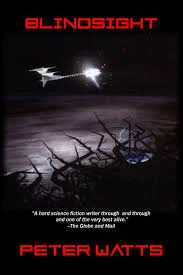Anthony Lewis' FREEDOM FOR THE THOUGHT THAT WE HATE: A BIOGRAPHY OF THE FIRST AMENDMENT
Book review by Dennis D. McDonald
This little volume is packed with an amazing amount of readable information about the history of the U.S. Constitution’s First Amendment, libel, privacy, freedom of speech, and freedom of the press.
The most important point made about these topics is that freedoms we in the U.S. now take for granted were developed painfully and slowly over many years through difficult legislative battles and creative and thoughtful judicial interpretations of the law.
Early in U.S. history it was not unheard of for political opponents to be imprisoned for speaking out and publishing anti-government opinions. Such august figures as Thomas Jefferson participated in what we would now define as anti-democratic persecution. Over time, the right of people to speak out against the government, even in times of war, has evolved. But it has not been easy, given the receptiveness so many people have to the “giving aid to the enemy” accusation.
One interesting aspect of the book is that the author also intertwines his discussion of freedom of the press and freedom of speech with a consideration of libel and the right to privacy. This is a difficult feat, and the author seems to prefer a concept of “balance” that weighs speech against the issues of libel and privacy concerns.
I have a couple of observations based on my reading of this book, the first “legal” book I’ve read in quite a while:
- Some of the repressive government behaviors we in the U.S. lecture other countries about were not so uncommon here not so long ago.
- Freedom of speech and freedom of the press, the way the author writes about them, are not identical. Many of the “press” issues he describes (and the related legal precedents) are specifically related to organized publishing entities such as newspapers. The relationship between the two is not always clear.
- Given so much attention to freedom of the press, I kept wondering about the extension of these principles to less “institutional” purveyors of political opinions such as independent blogs and web sites. The author does not address this.
Review copyright (c) 2008 by Dennis D. McDonald


